Some Reasons why Your Car is Making Rattling Noise
It’s annoying to hear car is making rattling noise when driving. What makes it even more aggravating is that a rattle can suggest a little issue that will cost nearly nothing to repair or a major one that will cost thousands of dollars to correct.
When you hear a car is making rattling noise your engine is running but your vehicle is not moving, it is necessary to consult a forensic auto mechanic. That is, you examine the available clues to help you answer the question, “Why is my car making a rattling noise when idle?” Because no two rattles are alike, determining the rattle’s likely cause requires a little more science than reading tea leaves. So, by listening to the rattling and where it appears to be coming from, you may begin to determine where the problem is and how much it will cost to repair it.

Rattles from Inside the Car
One reasonable approach to problem diagnostics is to work from minor to major difficulties. Before you embark on intricate and expensive repairs, rule out the easy remedies. When it comes to rattles when your engine is idle, the simple, easy-to-fix faults are frequently found within the car rather than in the engine compartment or driveline.
While today’s vehicles are significantly superior in terms of interior rattles and squeaks to cars from a few decades ago, those issues still arise. At idle, a loose center console lid, a broken glove box hinge, or even an object resting in a door panel pocket or cup holder can cause rattling.
If you hear car is making rattling noise while your car is idle, inspect the interior thoroughly, particularly the trunk or cargo area. Some vehicles include cargo-carrying systems and cargo coverings, which could be the source of rattling you only hear when the sound system is turned off.
In general, the solutions to these issues are self-evident, and they can be accomplished with a simple screwdriver or pair of pliers, or without any tools at all.
Must Read: Transmission fluid color | The Guide You Must Know
Rattles From Under the Car
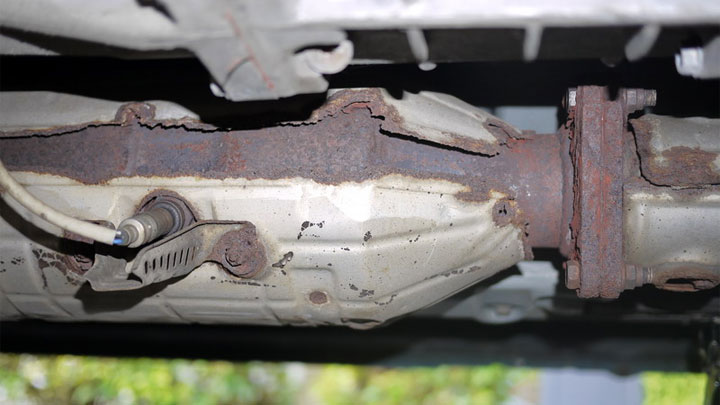
If you’ve investigated all of the interior components that could be rattling and still haven’t found the source, the noise is most likely coming from somewhere else in the vehicle. If the rattling sounds like it’s coming from the interior but you haven’t found any loose interior pieces, the noise is most likely coming from underneath the car, possibly immediately under the passenger compartment.
The exhaust and emissions systems are two prominent origins of these disturbing sounds. Again, it’s best to start with the simplest problems, and in this case, the simplest problem is with a heat shield. Heat shields are often low-cost components that insulate neighboring regions from the heat emitted by the exhaust system.
They rust, and as they corrode and disintegrate, they can begin to rattle.
Rust and corrosion also deteriorate the exhaust system, which might result in rattling. In cases like this, the muffler or tailpipe should be changed. An exhaust system clamp can become loose and cause a rattling.
A malfunctioning catalytic converter is another source of rattling under the automobile. A catalytic converter, as an essential component of the exhaust emissions system, eliminates the most toxic chemicals and components from the vehicle’s exhaust fumes. Its core is honeycomb-like, and in its super-heated environment, it converts unburned gases into less hazardous components.
Noises Coming from the Engine When Idling
The hydraulic valve lifters in the engine are a common source of car is making rattling noise while idling. This component of your vehicle is in charge of opening and closing the engine’s intake and exhaust valves.
A loud ticking sound can frequently be heard beneath the hood when a lifter is not performing properly.
Piston slap is another issue that could be creating a rattling noise at idle. Piston slap can occur if one or more of your pistons no longer fit properly in the cylinders due to wear. This should be investigated as soon as possible.
Here Are Some Reasons Why Your car is making rattling noise
Exhaust Hangers and Clamps that are too loose
The hangers and clamps on an exhaust system deteriorate with time, primarily due to rust. When this happens, these essential components can become loose or deteriorate to the point of failure.
As a result, excessive vibration is possible. This generates noise that frequently varies in intensity with acceleration.
This type of problem is usually resolved by replacing a component. Damaged hangers, as well as rusted or otherwise compromised exhaust clamps, should be replaced with OEM comparable components as necessary.
Catalytic Converter Failure
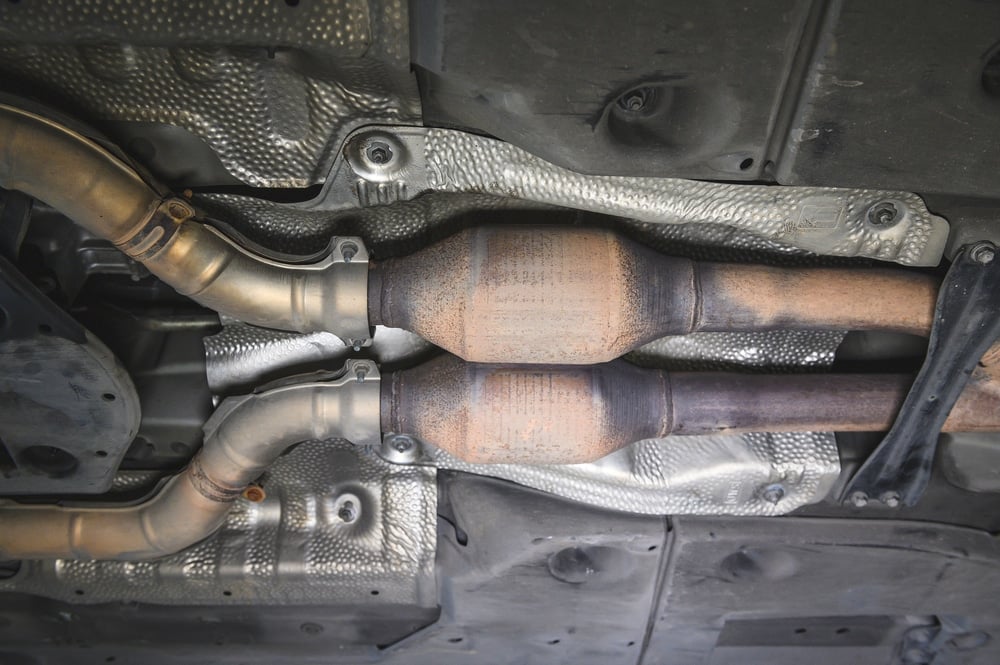
Catalytic converters are used in today’s cars to break down typical emissions-related pollutants, converting them into less hazardous compounds.
Unfortunately, overheating or damage can cause these devices to malfunction, causing portions of their internal structure to break away and rattle around. This noise frequently resembles marbles being rattled inside a can.
When a catalytic converter fails, it must be replaced. However, unless destroyed by an underlying source, catalytic converters usually function normally. Before replacing the unit, the source of the damage should be determined.
Suspension Failure
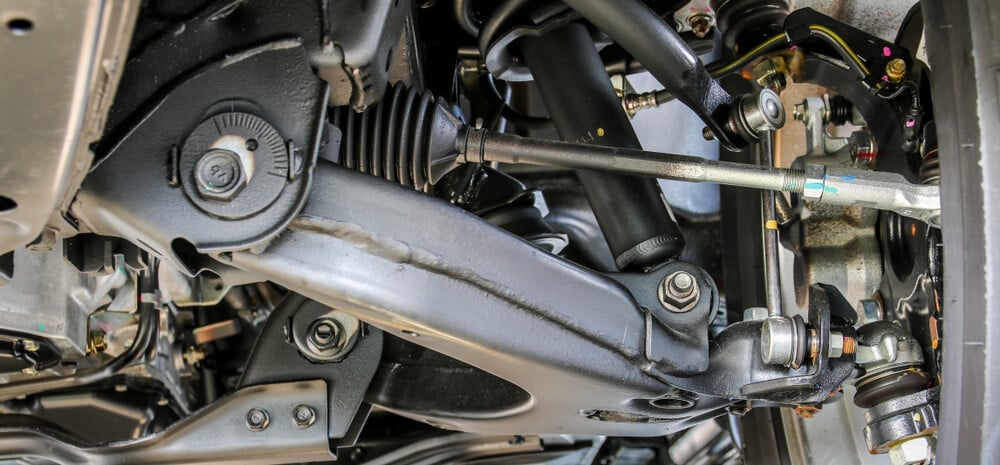
There is an integrated system of suspension parts beneath the car. The suspension’s aim is to lessen the ride and absorb irregularities. Shock absorbers, struts, sway bars, springs, and bushings are all components of a suspension system. When everything is in functioning order, the trip is smooth. Otherwise, shaking and a bumpy ride are possible.
When a suspension item wears out, it usually needs to be replaced. Some elements, such as shocks, should be replaced in pairs. If you delay the replacement, other parts may begin to fail, or the tires may wear unevenly.
faulty brakes
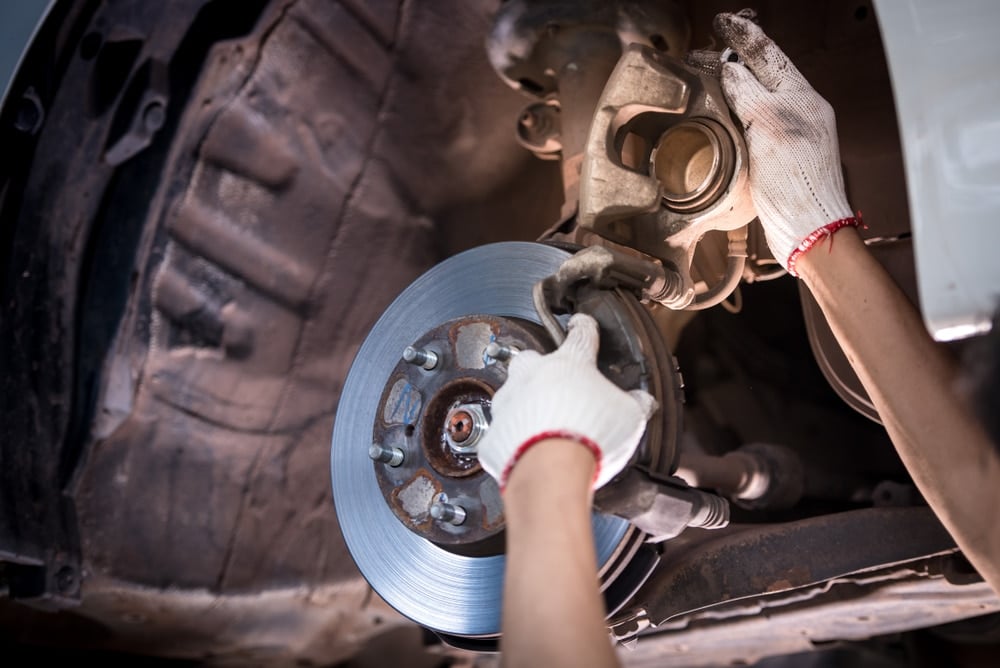
When you push the brake pedal, your car comes to a complete halt. When you compress the brake pedal, the brakes exert pressure to the rotors, which slow the movement of the wheels. After several miles of use, the brake pads wear out and must be replaced. If you detect rattling or vibration while slowing down, the issue could be with the brake system.
If you do not replace the brake pads, the problems may worsen. The worn pads will eventually cause uneven rotor wear. It’s also possible that the brake calipers and other components will fail, resulting in vibrations and a rattling sound.
Wheels or tires that are defective
If you hear rattling from under the vehicle around the wheel wells, the issue could be the tires or wheels itself. It’s likely that a bolt or lug nut has come loose, causing the strange sound. Aside from that, a faulty tire or wheel may produce unusual sounds resembling a rattle.
If a bolt becomes loose, it must be tightened again. Otherwise, repair or replace any broken parts on the wheel or tire to maintain road safety.
Heat Shield Damage
The exhaust system of a vehicle is often covered with multiple heat shields that insulate other components from the effects of heat radiation. While heat shields are generally trouble-free, they are susceptible to the effects of rust and corrosion.
In such conditions, a heat shield can become detached from its welds and vibrate against neighboring exhaust components.
When a heat shield becomes detached from its mounts, it can be tack welded back into place or replaced and reattached. If rust has totally destroyed the integrity of a heat shield, it is usually necessary to replace it.
Under Hood Rattle
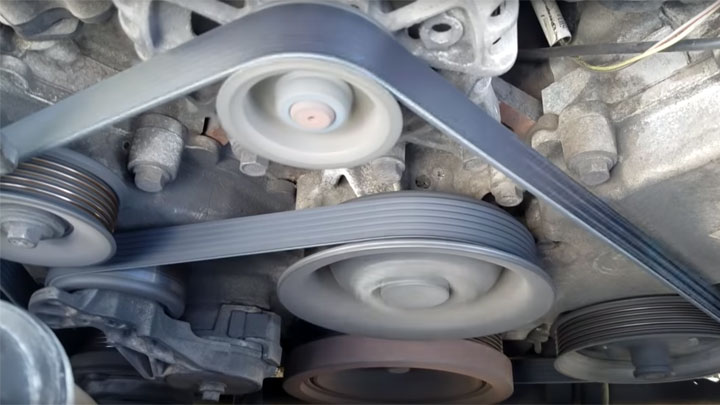
Car is making rattling noise can sometimes come from a vehicle’s engine area, causing major anxiety. The underlying source of these noises can vary greatly in intensity. It’s possible that your hood latch is at blame.
Any unusual engine noise should be examined right away to avoid further problems.
FAQs
Is it safe to drive a squeaky car?
No. Because there are so many various items that can generate a rattling noise, it is not safe to drive without first discovering the source of the problem. The cause may not be critical in the end, but you must investigate and diagnose it first.
Is it possible for a transmission to generate a rattling noise?
Yes. A transmission can generate a rattling noise, but this is unusual. If you hear rattling under your car, the problem is most likely with the exhaust system, catalytic converter, or suspension.
How much does it cost to repair a squeaking car?
Because there are so many various factors that might generate a rattling noise, there is no way to predict how much it will cost to fix a rattling car. For example, if an exhaust system part is loose, you can fix it for free. However, if the problem is a failed engine, it can cost more than $10,000.
Is shaking caused by low engine oil?
Yes. Low engine oil levels might allow air to enter the hydraulic lifter, causing it to rattle. It can also damage the rod or crankshaft bearings, resulting in a rattling sound and a hefty repair bill.
Conclusion
To repair a rattling noise, first discover where it is originating from. The car is making rattling noise could be heard under the vehicle, under the hood, or inside the vehicle. When there is a fault, almost any portion of the car might create rattling, thus proper diagnosis is critical.
If you don’t think you have enough knowledge to repair it yourself, take it to a mechanic and have them analyze the problem. If the issue is more significant, such as an engine problem, you may need to take it to a shop as well. In any event, don’t dismiss unusual noises coming from your vehicle!
